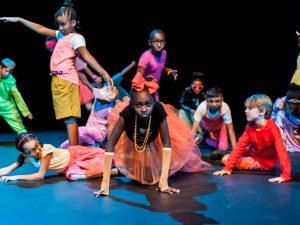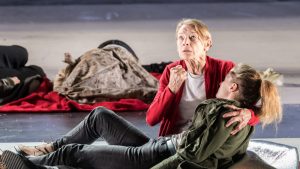
Twice a year a friend stays with us for a fortnight or so. Temporarily, we become a four person (sort of) household: My Loved One, Resident Friend, Ms Alzheimer’s and me.
RF and I were at school together (lovely, leafy – back then – Sydenham High School) and MLO has known her nearly as long as I have. She likes to spend regular time in her native London because she is mostly based somewhere else – and ours has, over the years, become her London home. It’s effectively like having a second, much loved sister who moves in at Christmas and for a block of time in the summer. She’s currently here for her summer residence.
It makes a terrific difference to me to have someone else in the house to chat to on a casual daily basis. It reminds me just how much of the ordinary companionship Ms A has leeched out of my marriage. MLO used to be my best friend. He was also my business partner. We could and would chat all the time about everything and anything. Now it’s like living with a dependent child who has, maybe, low level special needs and has to be told everything very slowly several times. I have to be careful what I tell him and how I put it. Ordinary chance remarks are off limits. There’s no longer anything equal about any of it.
I dare not, for example, mention anything which is not happening today or he’s liable to get confused. My own head is full of arrangements and plans for tomorrow, next week, next month and so on but I have to be very controlled about sharing any of it. If you can’t speak spontaneously, naturally and normally then communication is strained. Suddenly the relationship morphs into something quite different.
It’s also, I’m ashamed to admit, a pleasure to go to the theatre to review with someone who can walk up and down steps unaided and doesn’t need to visit the loo every 10 minutes. It’s almost as if RF, on holiday herself, is also giving me a bit of one just by being there. And fortunately MLO can still cope at home on his own for a few hours provided no one makes any demands on him and I leave him something very simple and pre-prepared to eat.
The other great benefit of having RF here is that she is admirably patient with Ms A’s victim. She’ll gently help him fold the table cloth after a meal for example, even if it takes several attempts whereas I’m inclined to snatch it out of his hand and snap: “I’ll do that”. She’s very willingly agreed to take him to a hospital appointment this weekend to so that I can whizz off to an all day, escapist string orchestra workshop in Folkestone. She makes him hot drinks, helps him kindly when she can see he needs it and tries to include him in activities such as collaborative crossword solving – at which he sometimes surprises us both. RF and I know nothing about cricket but MLO produced the name “Shane Warne“ without missing a beat the other day. Alzheimer’s is such an unpredictable, patchy illness.
On the other hand I am well aware that when she arrived on 3 August she hadn’t seen MLO since 01 January. Although RF and I are in touch all the time and she knows in some detail what’s going on, when she gets here I’m suddenly conscious of how things have deteriorated and what changes she will notice. Seven months is a long time when Ms A has her fangs buried in you. The deterioration is relentless.
For himself, MLO sometimes forgets she’s in the house. He’ll put cutlery on the table for the two of us and I have to remind him that RF’s upstairs and will be down for breakfast shortly. She is gloriously unfazed if she meets him wandering naked on the upstairs landing because he’s forgotten a) when it’s his turn for the bathroom and b) that there’s anyone in the house apart from me.
When I was out reviewing at the Proms last week and, unusually, both sons were staying over because they were working locally I was told afterwards about a high comedy moment when MLO turned to RF and said very politely: “Would you like to stay and have dinner with us?”
If you couldn’t laugh you’d weep. A lot.
Photograph: Resident friend taking a photograph on a trip out with me while MLO was safely at home.








